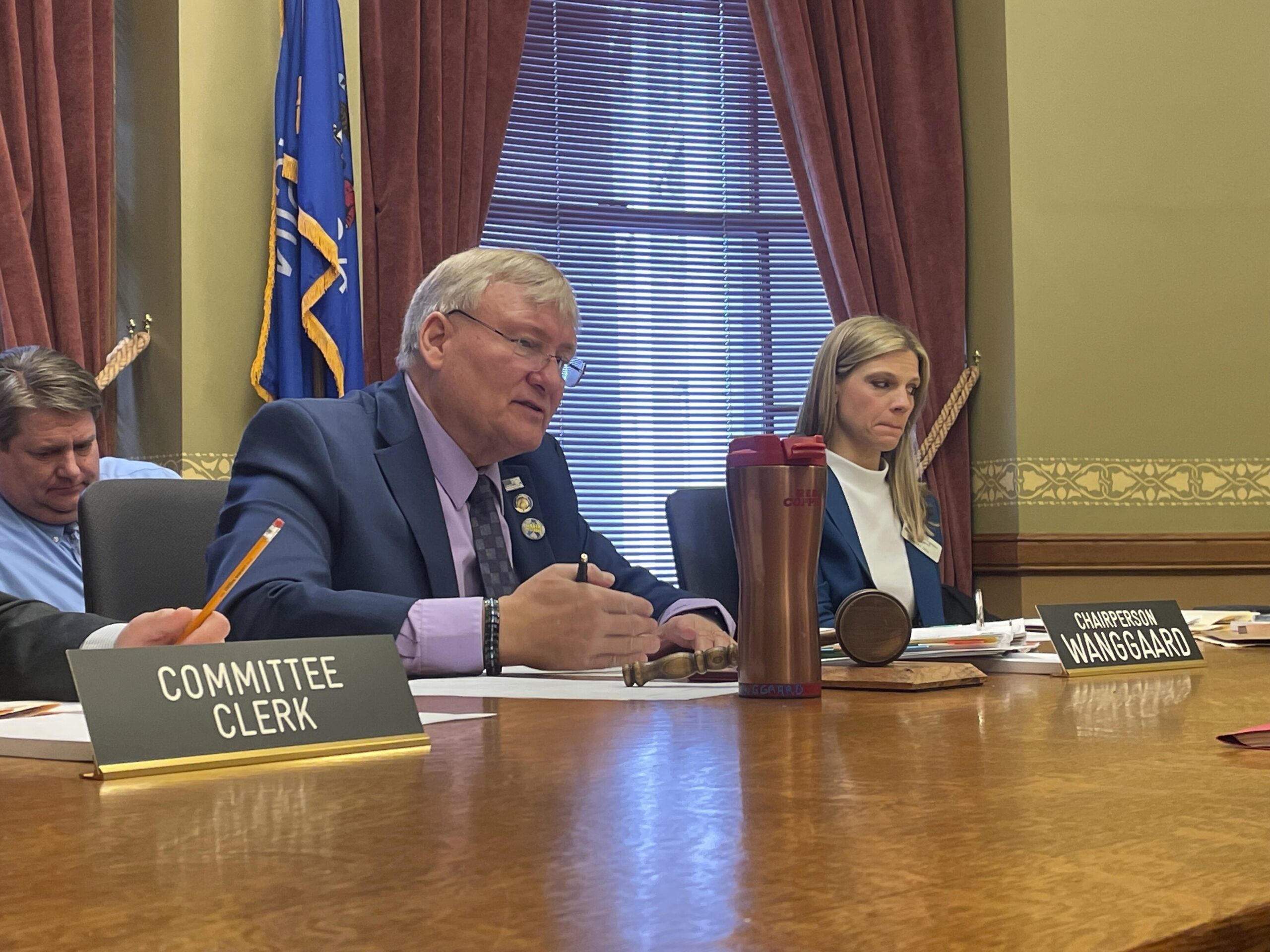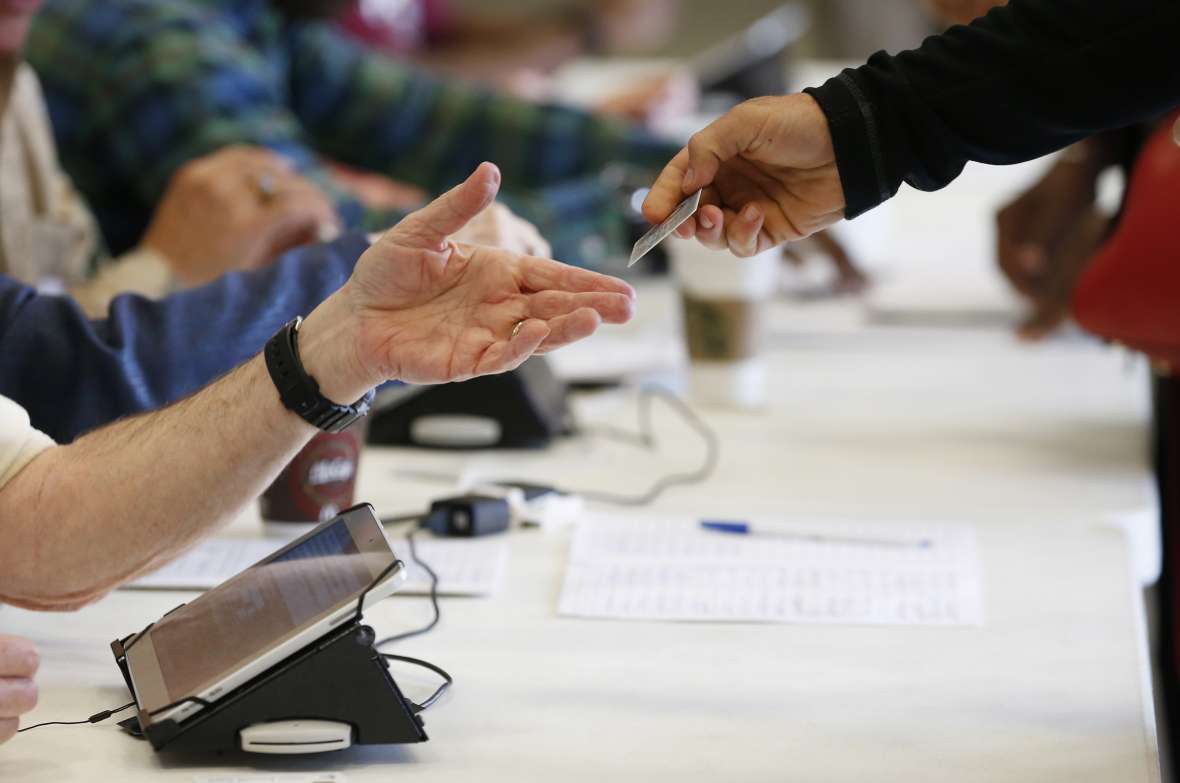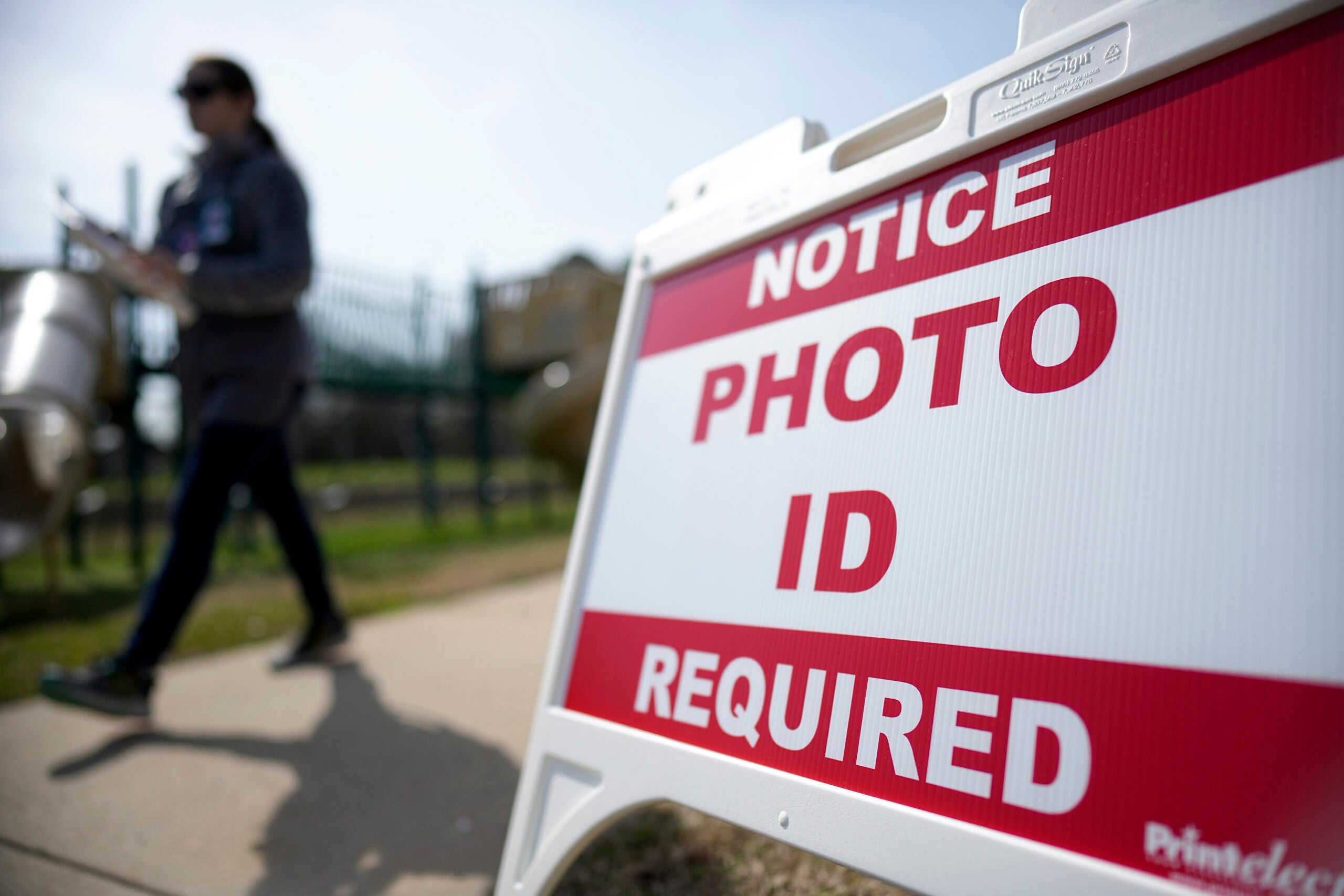Republican state senators approved a proposal Wednesday to enshrine Wisconsin’s voter ID law into the state constitution, as GOP lawmakers move rapidly to put the issue before voters this spring.
The resolution was brought to the Senate floor just one day after it moved out of committee and two days after Wisconsin lawmakers were sworn in for a new session. It passed along party lines as Democrats protested that Republicans were playing politics ahead of a high-profile Supreme Court election.
The proposal would amend the state constitution to render permanent Wisconsin’s requirement that voters present photographic identification when they cast ballots, a move that Republican authors say would prevent the state Supreme Court from undoing the law.
News with a little more humanity
WPR’s “Wisconsin Today” newsletter keeps you connected to the state you love without feeling overwhelmed. No paywall. No agenda. No corporate filter.
The full Assembly is scheduled to vote on the measure on Tuesday. If it passes that chamber, it will have passed the state Legislature in two consecutive sessions, which would clear the way for it to appear on ballots on April 1.
Heated debate ahead of high-stakes Supreme Court race
Democrats in the state Senate argued Republicans were moving too quickly on an issue they deemed unimportant, while Sen. Van Wanggaard, R-Racine, the measure’s co-author, countered that it was a means of protecting the decade-old law from court maneuvers.
“I am unwilling to let this basic election integrity measure be overturned by the state Supreme Court,” said Wanggaard.
He responded to arguments from voting experts that some groups — including disabled people, older people and low-income people — are less likely to have access to required forms of identification.
“As a Legislature, we still have the ability by this amendment to make changes to what type of identification is required. We could do that as a Legislature, but we’re still going to have to have some type of photo identification,” he said.

Democrats said lawmakers should prioritize other issues, like preventing gun violence and addressing economic stressors on families.
“There are many other challenges that Wisconsinites are facing — serious challenges that require legislative attention and policy solutions,” said Sen. Kelda Roys, D-Madison.
“But … the first thing that we’re going to do is go back to the old, tired Republican playbook of power grabs, cynical partisan ploys to try to rig the system so that Republicans can maintain their political power,” she continued.
Voter groups also argue that Wisconsin’s ID law is overly burdensome when compared to similar requirements in other states. In a statement, Jay Heck of Common Cause Wisconsin called the proposed amendment “extremely divisive and misguided” and argued that voter fraud is vanishingly rare.
Earlier on Wednesday, Assembly Speaker Robin Vos, R-Rochester, said Republicans were prioritizing the issue because it was popular, not solely because the April ballot will also contain candidates for a high-stakes Supreme Court seat.
“It’s one factor. But I’ll tell you, when we took this amendment up a year-and-a-half ago, we didn’t know that Justice (Ann Walsh) Bradley was retiring,” he said.
Brad Schimel, a conservative Waukesha County judge, and Susan Crawford, a liberal Dane County judge, are poised to appear on the April 1 ballot in a race to replace Bradley, a member of the court’s 4-3 liberal majority.
That liberal majority, achieved in 2023 for the first time in 15 years, has ruled on cases that undermined Republican political priorities, including overturning GOP-drawn voter maps.
No challenge to Wisconsin’s voter ID law, which was enacted in 2011 and faced state and federal lawsuits, has been brought before that new liberal majority. But the bill’s authors argued amending the constitution would preemptively make it harder for the court to change the law.
“It’s something that certainly should never be overturned by anyone but the will of the people,” said Vos.
The proposed constitutional amendment passed the Legislature once before, along party lines. The law it would make permanent was enacted under Gov. Scott Walker in 2011, and upheld by a conservative majority on the state Supreme Court in 2014.

Constitutional amendments a tool under divided government
Constitutional amendments go through a different process than typical bills. They must pass two consecutive sessions of the Legislature and then be approved by voters. They are not subject to a governor’s veto.
Democrats argue that Republicans have taken to using the tool to subvert the legislative process and bypass Evers’ veto pen. Republicans argue that voters would not approve unpopular initiatives, and that the amendments are a way to bring issues directly before voters.
Under divided government — in this case, a Democratic governor and a Republican-held Legislature — constitutional amendments are one way that the GOP can advance its agenda.
Wisconsin has no other means of putting statewide issues on ballots, a practice sometimes referred to as “direct democracy.” This month, Evers said he would propose a way for citizens to gather signatures to put forth ballot initiatives.
On Wednesday, Vos said such a proposal would be “dead on arrival.”
Wisconsin Public Radio, © Copyright 2025, Board of Regents of the University of Wisconsin System and Wisconsin Educational Communications Board.






